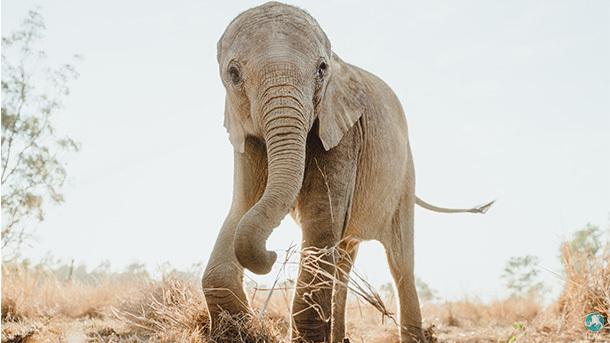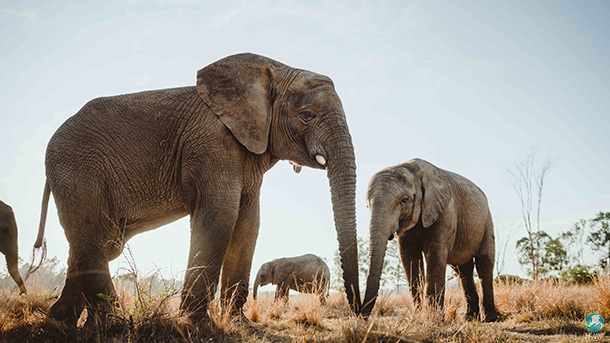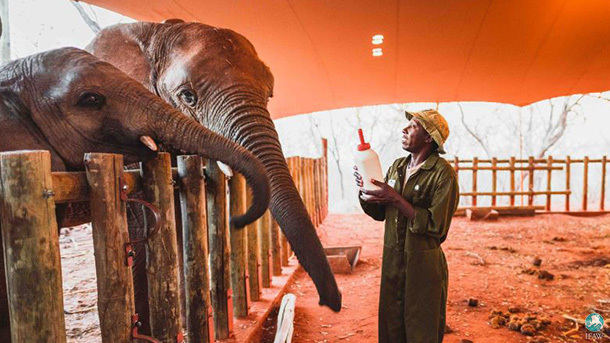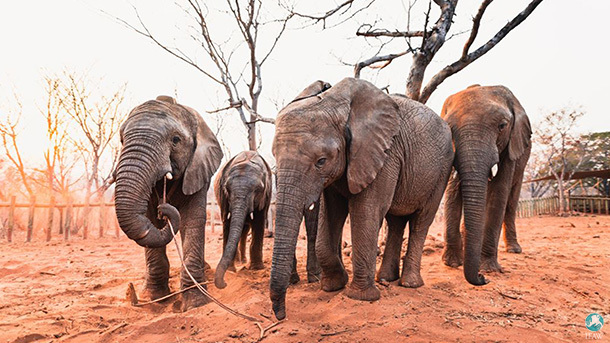Elephant Nursery and Landscape Project - Zimbabwe
Giving orphaned elephants a second chance at a life back in the wildthe ZEN Project: making a difference for individual animals, wildlife populations, habitats and local communities
the ZEN Project: making a difference for individual animals, wildlife populations, habitats and local communities

Nestled between national parks and elephant migration paths, Panda Masuie Forest Reserve was originally a lush landscape brimming with biodiversity. After years as a hunting concession, the habitat in this reserve became fragmented, animals dispersed in search of alternative migration routes, and the forest ecosystem suffered. In 2016, the Zimbabwean government and Forestry Commission authorized the change in designation of the reserve from a hunting to a non-hunting concession on lease through our partner Wild is Life. Restoring this land to its former ecologically stable state would create immense opportunities for not only wildlife populations, but also local communities. Alongside Wild is Life, we stepped up to the challenge and launched the ZEN Project – an initiative to rescue, rehabilitate, and release elephants into Panda Masuie Forest Reserve. As a result, the project will transform the reserve into a healthy and functional part of the larger protected landscape in northwestern Zimbabwe.

Our initiative begins at the Zimbabwe Elephant Nursery (ZEN) in Harare. ZEN is the only facility in the country that rehabilitates and releases elephants. Here, orphaned elephants receive the specialized care needed to survive the loss of their mothers and their herds. They first develop strong bonds with their keepers, who serve as surrogate family while providing around the clock care. Once strong and healthy, the elephants begin to bond with one another and gain independence from their human caretakers. They begin to learn skills needed for life in the wild.
Stage two of the rehabilitation process begins as the orphans transition to a soft-release site where the elephants can gradually adjust to the life in the wild. Under our land lease contract, Wild is Life and IFAW were able to build a specialized “boma” (protected area) in Panda Masuie Forest Reserve that now serves as our re-wilding facility. In May 2018, we translocated six elephants from the nursery at ZEN to the new facility in Panda Masuie. At this new location, the elephants are able to grow out of their comfort zones and acclimate to life outside of their boma.

This January, the elephants reached a major milestone in their re-wilding process: they experienced their first interaction with a wild elephant. On the night of January 12th, the handlers were awakened abruptly by excited trumpeting coming from the herd. Upon investigating the situation, they discovered that a wild bull elephant had visited the facility. For thirty minutes, the bull walked alongside the interaction zone, with only a wooden barrier fence separating him from the rescued elephants. From here on out, we hope that the rewilding process will progress rapidly. Acceptance into existing herds is an importance aspect of the process, especially for the female elephants, as females stay in their family herds and rely on relationships with other females to learn the skills needed to raise and protect a calf. As the males become teenagers, they leave their maternal herds and connect with other young bulls. There is no way to predict when the members of the release herd may choose to join a wild herd, but more interactions like this are the beginning of the process.

But the journey doesn’t stop here. Securing landscapes and re-wilding rescued elephants is just one part of the big picture: our holistic approach integrates community engagement with landscape conservation to foster coexistence with wildlife. People and wildlife have always been interdependent and will continue to be intrinsically linked together. Helping communities understand this interconnectedness is crucial for the wellbeing of people, individual animals, wildlife populations, and habitats. When we empower communities by providing resources like law enforcement rangers, access to clean water, improved education, and human-wildlife conflict mitigation, we help people develop sustainable and economically viable livelihoods. Through initiatives like the ZEN Project, we can build lifestyles that enable people to live in harmony with local wildlife, thereby improving the quality of life and the health of ecosystems.
Related content
Every problem has a solution, every solution needs support.
The problems we face are urgent, complicated, and resistant to change. Real solutions demand creativity, hard work, and involvement from people like you.